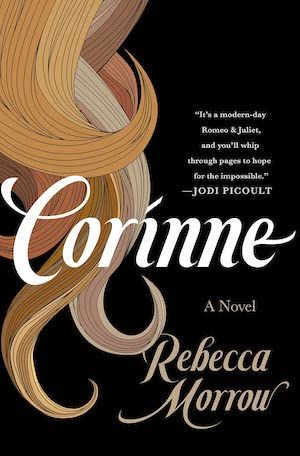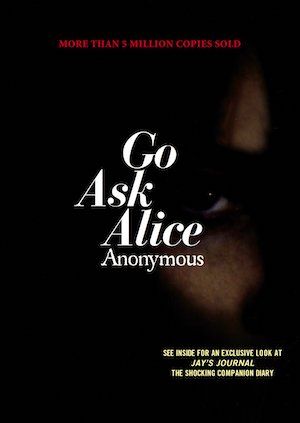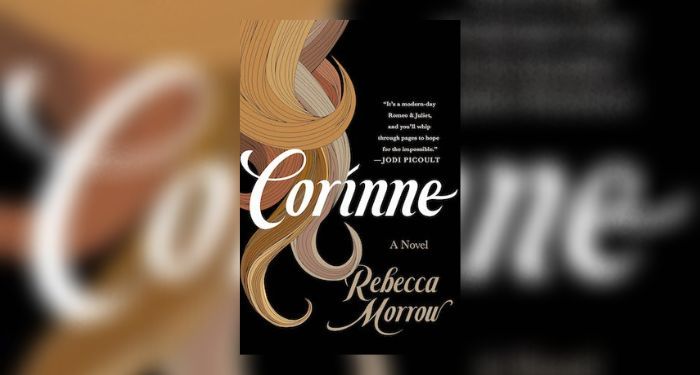Authors using pseudonyms is nothing new. In fact, there are still five that are unknown, with another mystery author story fresh from the headlines this week. They choose a pseudonym for many reasons: to avoid the limelight, to remain anonymous, to avoid criticism, or to protect their identity. Some authors write under a pen name when they switch genres or audiences—Sandhya Menon writes as herself for young adults and as Lily Menon for adults, for example. But things get curious when it’s a bestselling author writing under a pen name and keeping their true identity a secret.

The bookternet has been abuzz with speculation on who could have penned the spicy romance novel Corinne that came out in July, and it got me thinking about how to become a literary sleuth.
The speculation began with this Reddit post that points to Stephenie Meyer, of Twilight fame, writing as Rebecca Morrow. The author bio for Corinne simply says “Rebecca Morrow is a pseudonym for a New York Times bestselling author.”
The clues the poster—and other readers—present sound convincing enough: The book is about a woman leaving a fundamentalist church, and Meyer is affiliated with the LDS church; Corinne is also the name of a city in Utah that was founded as anti-Mormon. Stephenie Meyer and Rebecca Morrow are both 3-syllable first, 2-syllable last names. Add in the content coincidences, like usage of the word “imprint” and general stylistic choices or plot points, and it’s even more convincing.
But you can’t call a mystery complete based on hunches alone. So I went digging.
Steps to Identify an Author’s Pseudonym
The first sleuthing steps are the obvious ones, and in this case, they led me nowhere.

I checked the Library of Congress catalog listing, which had once outed Stephen King as Richard Bachman and Beatrice Sparks as the “anonymous teen” behind Go Ask Alice. Alas, the author and copyright holder for Corinne is indeed listed as Rebecca Morrow.
Up next, take a look at the Acknowledgements of the book to find a nod to an agent or editor, which could narrow down the list of possibilities. A fellow Rioter checked their digital advanced reading copy of the book and found “Acknowledgments [to come],” but there are none in the hardcover edition. I’m an overachiever and traveled a few towns over to the nearest library with a copy of the book on the shelf to see it with my own eyes, but viewing the Search Inside the Book preview function on Amazon could have provided the information I needed.
Now comes the deeper digging: Check the publisher and imprint. While authors aren’t always published by a single publishing house or imprint, it is likely that they’ve built relationships and want to stay in one house. This could be a major clue.
In this instance, eyeing Meyer as the author of Corinne would be shut down at this stage. Twilight was published by Little, Brown and Company, a division of Hachette, while Corinne is published by St. Martins Press, an imprint of Macmillan.
Posters on Reddit, TikTok, and Twitter speculated other potential authors, all women in their 50s: Shannon Hale, Elin Hilderbrand, Rainbow Rowell, Adrienne Young.
Hale’s books are published by Bloomsbury and Random House imprints; Hilderbrand’s by Little, Brown imprints; Rainbow Rowell’s by Macmillan imprints; Adrienne Young’s by Macmillan imprints. This may point us in the direction of Rowell or Young, assuming they stuck with their previous publisher.
It’s also useful to take a look at who wrote the blurbs. For Corinne, that means Jodi Picoult and Samantha Irby. Young’s newest book, Spells for Forgetting, has a blurb from Picoult on the cover.
Of course, none of these findings are definitive answers. Things get more serious when you get text-analyzing technology involved.
The Role of Forensic Linguistics
One of the coolest stories to come out of the existence of She Who Must Not Be Named was when forensic linguists—which is a thing I never knew existed—nailed Robert Galbraith as the pen name for the Harry Potter author, using tools that analyze writing style and word choice.
Smithsonian Magazine broke down the process used by Duquesne University’s Patrick Juola, a professor of computer science and cybersecurity. The software he built could pinpoint a “linguistic fingerprint” after analyzing a variety of snippets of text—sequences of adjacent words, sequences of characters, most common words, author’s preference for short or long words—and comparing them to the suspected author’s prior works and other stylistically similar works in the genre.
Similar work was done in one of my favorite word nerd books, Nabokov’s Favorite Word is Mauve by Ben Blatt, where the linguist created a database of books and words to connect similarities among authors. NPR broke down some of the neatest stats from the book, like declaring an author’s favorite words based on how many books the word can be found in. Hemingway’s favorite word list including cognac is just *chef’s kiss*.
What about armchair detectives?
Unfortunately, I don’t have access to the technology required to run these scans, and the people who do that I reached out to didn’t get back to me. So we rely on armchair detectives—in this case, people who have read the Twilight books a gazillion times—to lead us toward the truth.
All of the shout-outs go to the Stephenie Meyer Ruined My Life podcast, who read Corinne and made voice memos of live reactions as they read, pointing out all the Meyer-esque moments, word choices, pacing, etc. They also noted instances that do not feel like Meyer, like good, eloquent writing alongside sexy sex scenes—my favorite quote from the episode is “It gets too spicy to be Stephenie Meyer, and it’s like, from mayo to ranch level spicy, but it’s not something she would write.”
That podcast and the wonderful Beth at @thecool_table on TikTok suggest that Corinne wasn’t actually written by Stephenie Meyer.
And that’s where we land in this case, unfortunately. But if you or someone you know has access to the tech to analyze text and find out definitively who the author is, I’m all ears.

